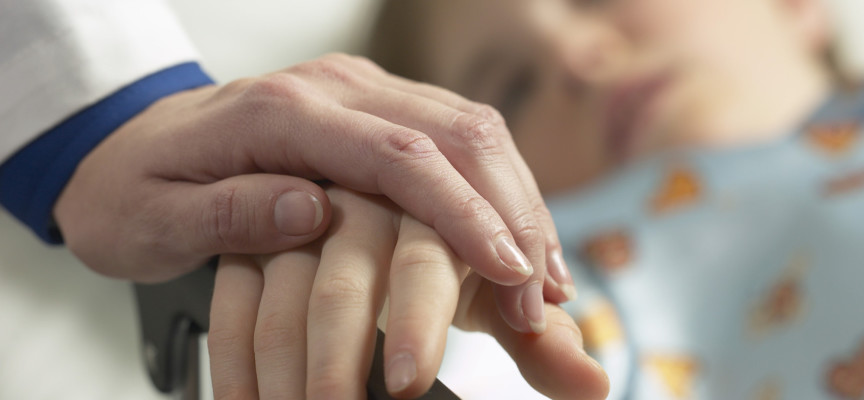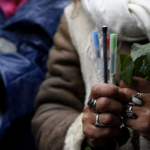On December 12, 2014, in Paris, two MPs – Jean Leonetti and Alain Claeys – published a Report which proposed a revision of the French law of 2005 about the rights of patients and the issue of the “end of life”. This revision is considered to fulfil a promise made by François Hollande in his presidential campaign of 2012. Adults with an incurable disease at an advanced or terminal stage which is causing unbearable physical or mental suffering, may request medical assistance to put an end “with dignity” to their lives. This promise was seen at the time as a response to the desire to legalize euthanasia.
The Report consists of two parts, and a draft of an amended bill. The first part is an analysis of the current state of the law and its application. The Authors conclude that in France there are inequality of citizens “in the face of death”, insufficient training of medical doctors in the area of palliative care, and the persistent phenomenon of “bad death” (le mal-mourir). Inequalities in access to palliative care are ‘territorial’ (e.g. the region of Nord-Pas-de-Calais in 2011 had a palliative care share of 5.45 per 100,000 inhabitants, compared to 0.36 in the region of Pays-de-Loire) or ‘sectional’ (e.g. 52% of cancer patients have access to palliative care, compared to 21% of patients with severe cardiovascular disorders). In order to improve the situation of people who are “facing death,” and to restore the equality of citizens, a lot of money should be invested to bring up palliative care in disadvantaged areas to the level of the national average.
The second part of the Report – according to the intention of the Authors – is about the introduction of new rights of patients at the end of their life. The MPs propose to introduce three groups of new rights. The first is defined as “the right to be heard”. That is, patients would be allowed to force doctors to give execution to their will as expressed in their “disclosed instruction” (la directive anticipée). The “disclosed instruction” is a type of medical will which allows anyone to express their opposition to persistent medical treatment. In accordance with the current legislation of 2005, medical doctors must take account of such instruction, except in cases of emergency or when the former is clearly wrong (manifestement inappropriée). This raises the issue of respect for the rights of medical staff to conscientious objection.
Another group of rights provides legitimacy to suspend or discontinue therapy, the right to be accompanied by a medical doctor in the event of termination or interruption of therapy, and the right to maximize pain reduction. The third group includes the right to deep and lasting sedation during the terminal stage until the patient’s death, and the commitment of the medical doctor to provide such sedation. Of course, this is not about human rights, but civil rights established by the State. Mgr. Pierre d’Ormellas, Chairman of the Working Group on the “End of Life” of the Conference of Catholic Bishops of France, said that euthanasia and assisted suicide do not respect medical ethics, but the principles of Republican brotherhood do not respect it either. Hence the health care reform in France should encourage the development of palliative culture that – unlike the “new rights” – can really help the fight against “bad death”. This direction of the reform, however, requires a very important financial outlay. The bishop emphasized that the cancellation of the reference to the “double effect” in the bill introduces uncertainty about the real reason of the doctor prescribing sedation until death. The principle of the “double effect” – Mgr. d’Ormellas observed – makes a clear distinction between situations in which the goal is to alleviate suffering, which can have the unintended effect of speeding up the time of death, and situations in which the goal is to speed up the patient’s death. Other commentators point out that the bill refers to two different types of situations in the context of “deep sedation” – conscious patients and unconscious patients. In the first case, the credible objective would be to alleviate the patient’s suffering. In the second, mainly in relation to the possibility of termination of artificial feeding and hydration, the proposal could pave the way to assisted suicide.
The draft of the amended bill will be discussed by the French Parliament in the coming weeks, while the Conference of Catholic Bishops of France will publish a detailed analysis of the proposal. The peaceful tone of Catholic comments makes room for a thin thread of dialogue, and to the hope that the bill will not be used to introduce euthanasia and assisted suicide. Mgr. Pierre d’Ormellas notes, however, that in the secular approach the myth of death that does not imply mental or physical pain is on the rise. Human beings, though, remain vulnerable, and the only true relief to suffering inscribed in the human condition is a persistent fraternal accompaniment which is able to convince the sick that their life at every stage has a great value for their brothers and sisters, and for the One who said, “You are precious in my eyes” (Is 43:4).
Il 12 dicembre 2014 a Parigi è stato pubblicato il Rapporto di due parlamentari, Jean Leonetti e Alain Claeys, che propongono una revisione della legge francese del 2005 sui diritti dei malati e sul “fine vita”. Questa modifica è vista come il mantenimento della promessa di François Hollande nella campagna elettorale presidenziale del 2012. Adulti con malattia incurabile in fase avanzata o terminale, che provoca un’insopportabile sofferenza fisica o mentale, possono chiedere assistenza medica per porre fine “con dignità” alla loro vita. Questa promessa era vista a quel tempo come risposta al desiderio di legalizzare l’eutanasia.
Il Rapporto consiste in due parti e contiene la bozza di un disegno di legge modificato. La prima parte è dedicata all’analisi dello stato attuale della legge e alla sua applicazione. Gli autori concludono che in Francia esistono la disuguaglianza dei cittadini “di fronte alla morte”, la formazione insufficiente di medici nel campo delle cure palliative e il fatto persistente di “mala morte” (le mal-mourir). Le disuguaglianze nell’accesso alle cure palliative sono territoriali (ad es. Le Nord-Pas-de-Calais nel 2011 aveva 5,45 palliative per 100 mila abitanti rispetto allo 0,36 nel Pays-de-Loire) e settoriali (il 52% dei malati di tumore ha accesso alle cure palliative, rispetto al 21% dei pazienti con malattie del sistema cardiovascolare). Al fine di migliorare la situazione delle persone che sono “di fronte alla morte” e per ripristinare l’uguaglianza dei cittadini sarebbe necessario investire molti soldi per portare le cure palliative in aree sfavorite, rendendole al livello della media nazionale.
La relazione contiene poi una seconda parte che, nell’intenzione degli autori, è l’introduzione di nuovi diritti delle persone malate alla fine della vita. I deputati propongono d’introdurre tre gruppi di nuovi diritti. Il primo è definito come “il diritto di essere ascoltato”. Il paziente può cioè forzare il medico a eseguire la sua volontà espressa nella “direttiva anticipata” (la direttive anticipée). “La direttiva” è un tipo di testamento medico che permette a chiunque di esprimere la sua opposizione al trattamento medico persistente. In conformità con l’attuale normativa del 2005 il medico è costretto a tenere conto di tali indicazioni, tranne che nei casi di emergenza o quando sono chiaramente sbagliate (manifestement inappropriées). Questo pone la questione del rispetto dei diritti del personale medico all’obiezione di coscienza.
Un altro gruppo di diritti prevede la legittimità di sospendere o interrompere la terapia, il diritto di essere accompagnato da un medico in caso di cessazione o interruzione della terapia e il diritto di non soffrire. Il terzo gruppo di diritti prevede infine il diritto alla sedazione profonda e duratura in fase terminale fino alla morte e l’impegno del medico a fornire la sedazione. Certo, non si tratta qui di diritti umani, ma dei diritti civili stabiliti dallo Stato. Mons. Pierre d’Ormellas, presidente di gruppo di lavoro della Conferenza dei vescovi di Francia sul “fine vita”, osserva che l’eutanasia e il suicidio assistito non rispettano l’etica medica, ma neppure i principi di fratellanza repubblicana. Quindi la riforma sanitaria in Francia dovrebbe incoraggiare lo sviluppo della cultura palliativa che – al contrario dei “nuovi diritti” – è in grado di aiutare realmente la lotta contro la “mala morte”. Questa direzione della riforma, tuttavia, richiede un notevole esborso finanziario. Il vescovo rileva che la cancellazione nel progetto del riferimento al “doppio effetto” introduce incertezza sul motivo reale del medico che prescrive la sedazione fino alla morte. Il principio del “doppio effetto”, sottolinea mons. d’Ormellas, fa una chiara distinzione tra le situazioni in cui l’obiettivo è alleviare le sofferenze, che può avere l’effetto indesiderato di accelerare il momento della morte, e situazioni in cui l’obiettivo è accelerare la morte del paziente. Altri commentatori sottolineano che il progetto di legge si riferisce a due diverse tipologie di situazioni nel contesto della “sedazione profonda”: pazienti coscienti e incoscienti. Nel primo caso l’obiettivo credibile potrebbe essere quello di alleviare le sofferenze. Nel secondo, soprattutto a causa della possibilità della cessazione dell’alimentazione artificiale e dell’idratazione, la proposta potrebbe aprire la strada al suicidio assistito.
Il progetto di modifica della legge sarà discusso dal Parlamento francese nelle prossime settimane, mentre la Conferenza dei vescovi di Francia pubblicherà un’analisi dettagliata della proposta. Il tono abbastanza tranquillo dei commenti cattolici lascia intravvedere un filo sottile di dialogo e la speranza che il disegno di legge non servirà per introdurre l’eutanasia e il suicidio assistito. Mons. Pierre d’Ormellas osserva, tuttavia, che nel mondo laico cresce il mito della morte che non porti sofferenza né fisica né mentale. L’uomo, però, rimane un essere vulnerabile e il vero sollievo alla sofferenza inscritta nella condizione umana è un accompagnamento fraterno, persistente e capace di convincere la persona malata che la sua vita in ogni sua fase rappresenta un grande valore per i suoi fratelli e per Colui che ha detto: “Tu sei prezioso ai miei occhi” (Is 43,4).
Piotr Mazurkiewicz
Latest posts by Piotr Mazurkiewicz (see all)
- End of life: what is the true right? - 31 dicembre 2014
- Reflect on the fragility - 31 luglio 2014
- The value of marriage - 25 luglio 2014











